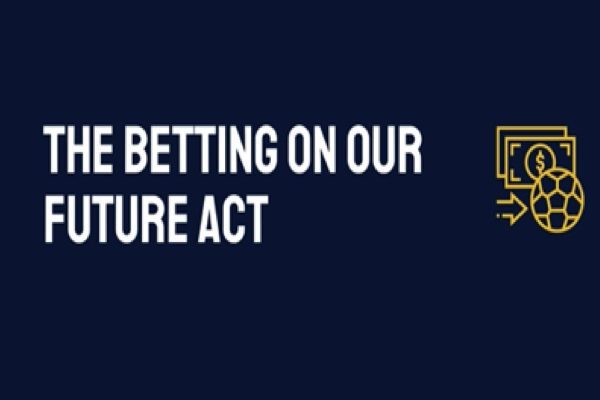Sports Betting Ads Could be Prohibited in the US
A new federal bill banning the distribution and broadcast of sports betting ads has been put forward in the US. Democrat Paul Tonko proposed the legislation to the House of Representatives. This would become the largest and most wide-reaching change to gambling laws on a federal level since 2018’s Supreme Court decision to overturn PASPA. It comes on the back of increasing concerns about rising problem gambling.

When the Supreme Court effectively legalized sports gambling in the States five years ago, the world of gambling changed in the US. It opened up a whole new market for millions for the first time. Since then, very few legislative changes have been made at a federal level. This has meant that the framework within which iGaming and retail sportsbook operators work has been outpaced by developments. Most federal – and even state – laws governing the provision of sports betting ads are archaic, outdated, and inadequate. Because of this, many have pointed out the need for greater legislation and oversight at a federal level in order to keep the industry in check. This is where this latest bill comes in and explains its sudden emergence.
Why Now for the “Betting on Our Future Act”?
As previously alluded to, the need for modern responses to modern problems is a primary driving factor behind the bill. A Pew report released in 2022 highlighted a worrying trend in the US. According to the National Council on Problem Gambling, betting had taken hold in an increasingly younger demographic. In their research, they found that between 60 to 80% of high schoolers had placed a bet in some form (this varied based on state). A major contributor to this worrying stat is thought to be the proliferation of online casino gambling and its ease of access for a younger crowd. And when considering that the NCPG’s research estimated that around 4% of high schoolers are addicted, it’s clear to see that intervention is required.
While that may seem unrelated to the concerns over advertising, no issue truly stands alone in such an interconnected ecosystem. In 2021, at the start of the NFL season, there was a reported increase in concern regarding the inextricable relationship between football in the US and gambling advertising. That season, the league imposed a cap on gambling advertising. This restricted the industry to six ads per game, and only from companies that the NFL approved. It came following increasing pressure from gambling heads in a number of states. They suggested that the industry would have to accept an all-or-nothing approach if they didn’t agree to reducing visibility.
The head of the New Jersey Division of Gaming Enforcement threatened that “the government will step in and certainly create standards they [gambling operators] may not want” if the industry didn’t self-regulate. It’s no surprise, then, that a bill sitting on the ‘nothing’ side of the all-or-nothing approach has come to fruition.
Navigating the Nothing in Gambling Marketing
If this bill does pass, it’s safe to say sweeping changes will be made. The act itself is fashioned around the Federal Cigarette Labelling and Advertising Act from the ‘60s. This banned tobacco advertising nationwide. Consequently it ushered in a whole new landscape for an industry heavily reliant on marketing its brand. Since that act passed, the percentage of Americans who smoke has dropped from a peak of nearly 50% to almost as low as 10%. And that’s exactly what legislators will hope this bill can do for the gambling industry. With approximately 85% of the US population having gambled in their lifetime, and 60% somewhat regularly, numbers similar to that of the drop in smokers would be seen as a huge win for opponents of gambling.
This will, however, mean a seismic shift in the way that gambling companies operate. Would a company see its user base drop by 80%? If so, could it handle a potential profit drop of the same amount? As such, many industry heads are fighting the bill. The American Gaming Association vice president stated that the AGA: “oppose any legislation that seeks to ban or limit casino gaming advertising, including for legal sports betting”. And it’s likely that advertising executives and others in the media will feel the same.
In 2020 alone, one single gambling operator spent around $500 million on marketing. Taking into account the entire industry, this would represent an eye-watering loss of billions for advertisers. It’s difficult to see those who stand to gain from that sort of ad spend taking it on the chin. And with the industry firmly against the proposed act; it’s set to be a war of attrition if it is to pass the House.
